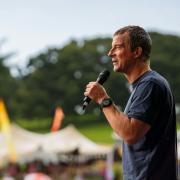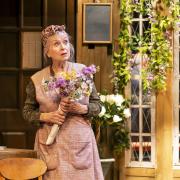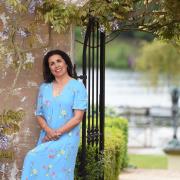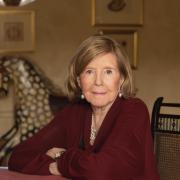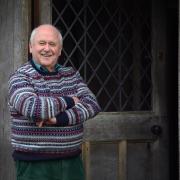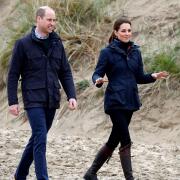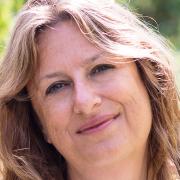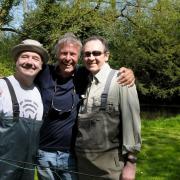Adam Henson has been passionate about conservation and farming since he was a young boy abandoning his homework books to help his dad with the imminent arrival of a new calf. So it was little surprise that after what he describes as an “idyllic childhood”, the presenter of the popular BBC One series Countryfile would follow in his father’s footsteps.
Now he has not only taken over the running of the family’s 650-acre estate in the Cotswolds, he is also a passionate supporter of the Rare Breeds Survival Trust, founded by his father Joe – and celebrating its 40th anniversary this year at the Royal Norfolk Show.
“As children, Dad gave me and my sisters a rare breed each, in return for our work on the farm. Not that we needed any encouragement. So many times ‘Where are you going Dad?’ was quickly followed by ‘Never mind the homework, I can do that later’, when a sow was farrowing or a cow calving,” he laughs.
“The result of owning a breed meant that we shared the value of any pedigree sales and it saved Dad giving us pocket money. The farm was never work, more a way of life. Dad used to drive my mum mad because nothing was just family – everything always had the farm connected. If we went for a trip somewhere we’d inevitably have to stop and buy a bull or check out a sheep on the way.”
Adam is clearly proud of his father Joe’s work with the Rare Breeds Survival Trust, and Cotswold Farm Park is still home to many of those breeds and is also a popular tourist attraction. “I couldn’t have been more pleased when my father was awarded an MBE for services to conservation, he has been a fantastic role model for me in everything I do.”
This year marks the 40th anniversary of the trust and Joe will be at the Royal Norfolk Show with a special Rare Breeds Village, which will feature many of the animals he has helped save over the years.
Although as a child, the breed given to Adam to look after was the Exmoor pony, these days it is the Cotswold Sheep, Gloucester cattle and Gloucestershire Old Spot pigs which he holds dear.
“All three breeds were extremely rare when I was young and I am delighted that gradually over recent years, consumers have started to demand food with a local provenance and great flavour, and all three breeds are now very successful.”
In 2001, the BBC was looking for a new presenter for Countryfile, someone with a farming background and Adam was selected from 3,500 applicants. He believes the decision to move Countryfile to a prime time slot on a Sunday has not only increased the number of viewers, but also developed the type of audience.
“Now the programme attracts not only farmers but millions of viewers who are just members of the public. I am passionate about the countryside and farming, and feel that we have a vital role in raising awareness of both.”
As well as running the farm, promoting the rare breeds survival trust and his presenting commitments, Adam has two children who already share their father’s passion. “Both my children, Ella and Alfie, have always lived on the farm and, in fact, Alfie has the same bedroom I used to sleep in as a child,” he says with a smile. “They have always had pet dogs, cats, rabbits and chickens. Over the years they have also adopted orphan lambs and goats, and my daughter loves riding, while my son has his own quad bike.”
He says he loves the fact they have the space to roam with relative freedom and that they both understand “the birds and the bees, life and death, and the seasons”. “I feel that teaches them values,” he adds.
When his father Joe first opened Cotswold Farm Park it was the first ever farm park in the country, offering children, and adults, the chance to interact with animals and to engage them with the countryside. While some visitors can be uncomfortable with the link between the food they eat and the animals before them, he believes learning about where food comes from is incredibly important.
“Just five or six years ago I was chastised by a teacher from a school visiting us when I asked the pupils where sausages came from. At the time she commented ‘The children do not need to know that sort of thing’. Thankfully times are changing and children are being taught where their food comes from, so that they can have a better appreciation and understanding of the landscape around them.”




